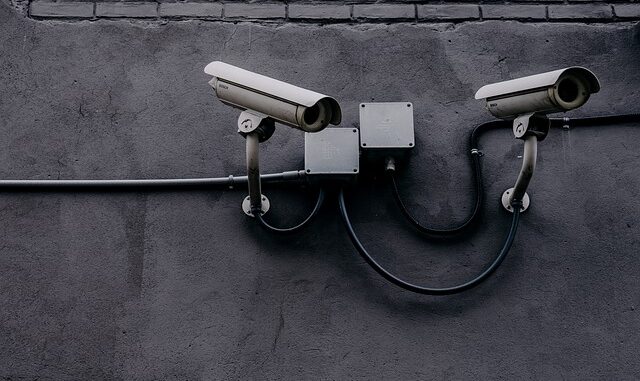
Summary
This article delves into the 2022 Choice Health data breach, its impact, the legal repercussions, and the broader implications for data security in healthcare. It highlights the increasing vulnerability of healthcare data to cyberattacks and emphasizes the need for robust security measures. The article also discusses the class-action lawsuit settlement and its significance for affected individuals.
Safeguard patient information with TrueNASs self-healing data technology.
** Main Story**
Alright, let’s talk about the Choice Health data breach. It’s a prime example of why healthcare organizations are such juicy targets for cybercriminals, and honestly, it’s a bit of a wake-up call.
The Nitty-Gritty of the Breach
Back in May 2022, Choice Health, which is an insurance brokerage, had a pretty serious data breach. The root cause? A misconfigured database. Apparently, their third-party vendor, Boru, Inc., didn’t properly secure it. This meant the database was basically open to anyone on the internet! Can you believe it? Once discovered, Choice Health jumped into an investigation and confirmed just how badly the information of their customers was exposed.
And what kind of data are we talking about? The usual stuff, but still… incredibly sensitive. Names, Social Security numbers, Medicare IDs, birth dates, addresses, contact info, and even health insurance details. Seriously, a hacker’s dream come true, or a nightmare for the policyholders.
Legal Troubles and Settling Up
Of course, lawsuits followed. A class-action suit popped up, claiming Choice Health was negligent. They were accused of not doing enough to prevent the breach, and dragging their feet on disclosing it. So, what happened? The company ended up settling for $500,000, but they didn’t admit they did anything wrong, mind you. That said, the settlement did offer some compensation to those who got breach notifications from Choice Health. Class members could get around $75, and even more, up to $4 grand, if they had proof of out-of-pocket losses directly linked to the breach.
A Bigger Picture: Healthcare Under Siege
Honestly, the Choice Health situation is just a symptom of a much bigger problem. Healthcare data breaches are becoming more common and more severe. Why? Well, that kind of data is worth a lot on the dark web. It’s a treasure trove of personal and financial information, making it a prime target for the bad guys. The comprehensive nature of medical records, including Social Security numbers and financial information, makes them extremely valuable to hackers. Here’s why:
- Old Systems and Vendor Networks: A lot of healthcare places are stuck with older systems and depend on various vendors. That ends up creating so many weak points for hackers to exploit. It’s like having a house with multiple unlocked doors and windows.
- Data is Gold: As mentioned, healthcare data is incredibly valuable. You can’t just change your Social Security number. That’s a big incentive for criminals.
- Time is Money (and Lives): When hospitals get hit with ransomware, they’re under huge pressure to get back online ASAP. This means they are more likely to just pay the ransom, even though that only encourages more attacks. I remember reading about a hospital that paid a ransom, only to find the hackers hadn’t even fully encrypted their data in the first place! What a mess.
Beefing Up Security: No More Excuses
So, what can be done? What follows are some things that can be done.
- Security Check-Ups: Regular audits and scans are crucial. Find those vulnerabilities before the hackers do. It is essential to do this regularly
- Train Your People: Employee training is a non-negotiable. They need to spot phishing emails and understand basic cybersecurity. I’ve seen some pretty clever phishing attempts lately; it’s getting harder to tell what’s real and what’s not.
- Multi-Factor Authentication (MFA): Use it. Everywhere. It’s such a simple way to add an extra layer of security, making it way harder for unauthorized access to your sensitive information.
- Lock it Down: Encrypt your Data: It’s like putting your valuable in a safe, even if they get hold of it, they can’t see it!
- Have a Plan: An incident response plan is essential. You need to know exactly what to do if you get hit. Panic doesn’t help.
Final Thoughts
Ultimately, the Choice Health breach, and others like it, should serve as a huge wake-up call. Healthcare organizations have got to prioritize data security, that’s it. By putting robust measures in place, and investing in the correct training, hopefully the industry can win back some public trust. It’s an ongoing battle, though. As of today, March 18, 2025, this is the current state of things, but the healthcare data security landscape is always changing. You need to stay on top of it, and adjust as needed.


The mention of older systems highlights a critical challenge. Upgrading legacy infrastructure can be costly, but the potential financial and reputational damage from breaches may justify the investment. How can smaller healthcare providers access resources to modernize their cybersecurity effectively?
That’s a great point about the challenges smaller healthcare providers face! Perhaps exploring grant programs specifically for cybersecurity upgrades or partnerships with larger organizations could help bridge the resource gap. What innovative funding models have you seen work effectively in similar situations?
Editor: MedTechNews.Uk
Thank you to our Sponsor Esdebe
A “hacker’s dream come true,” you say? More like a compliance officer’s worst nightmare! Given that healthcare data is gold, shouldn’t we be treating security like Fort Knox? What’s the ROI on avoiding a $500K settlement (plus reputational damage, of course)?